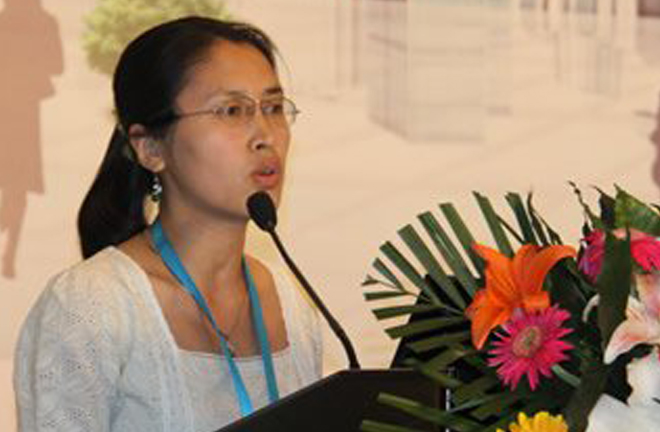LI YANI: Concept of cultural space vital to folklore studies
 Folk culture, an integral part of Chinese civilization, includes traditional knowledge and human wisdom that help to unite people from different nations and regions. Now, it should be a common concern for researchers and society to incorporate folklore studies into the framework of national cultural strategies.
Folk culture, an integral part of Chinese civilization, includes traditional knowledge and human wisdom that help to unite people from different nations and regions. Now, it should be a common concern for researchers and society to incorporate folklore studies into the framework of national cultural strategies.
Folklore is a field of humanities that records folk customs and folk concepts. It is closely related to ordinary people’s lives. However, the discipline is often considered to be detached from ever-changing modern lives, or it is believed to concentrate on cultural details or antiquated sayings. In fact, this is not the case.
Many scholars have realized that one concern and purpose of the field is to guide scientific decision-making in national cultural construction, and they should endeavor to make cultural policies more suitable to national conditions and more importantly to facilitate the improvement of people’s material and spiritual lives.
Whether analyzing classics and historical records about folk culture by ancient literati or protecting intangible cultural heritage in today’s society, China’s folklore researchers have participated in national cultural construction since ancient times. And at the initial stage of the discipline, it was placed within the framework of national cultural strategies, and it held an important position in the country’s cultural system.
Today, against the backdrop of globalization and urbanization, social life changes from day to day. Together with other traditional cultures, folk culture has great value for forming and strengthening national and ethnic identities. Therefore, the development of the discipline should be taken into consideration when formulating and implementing the country’s cultural strategies.
The role folklore plays in cultural construction is a subject of discussion for theoretical and applied folklore researchers alike. Some scholars hold that in the world’s constantly changing cultural environment, it is both an academic goal and a social responsibility for scholars in the discipline to research their home country’s cultural patterns.
Right now, many Western and African countries stress the participation of folklore researchers in cultural construction as a means to resist cultural hegemony and infiltration by other countries. Therefore, it is essential to include the knowledge system of folk culture, from literature to crafts, from humanities to sciences, and from temporal to spatial, into the society’s various regimes and plans.
In a globalized world, where great changes have taken place in society, politics and culture, the environment for traditional folk cultures is also transforming as well as the path to inherit them. In addition, people’s life styles and spaces have also changed. These all pose challenges to folklore studies.
The introduction of the concept of cultural space to the field is a new frontier. Cultural space, originally a proper noun used by UNESCO in protecting intangible cultural heritage, refers to forms and patterns of representative oral and intangible heritage. Cultural space can exist on different levels that are interconnected and mutually influential.
Reviewing folk heritage from the perspective of cultural space not only breaks through the single temporal dimension in observation and analysis by folklore researchers but also contributes to the extraction of cultural elements and signs, strengthening national unity and forming cultural identity.
Li Yani is an associate research fellow from the Women’s Studies Institute of China.
